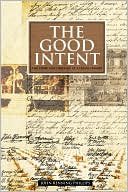

 |

|

The average rating for The Good Intent: The Story and Heritage of a Fresno Family based on 2 reviews is 4 stars.
Review # 1 was written on 2014-07-05 00:00:00 Brian Hooper Brian HooperHistorical, well-written and informative. Good book. |
Review # 2 was written on 2016-03-30 00:00:00 John Hornstein John HornsteinInteresting to view this bio through the gauze of 3 periods over the last hundred years - or at least try. Here goes: 1915 (Ishi's death): a biography of a non-fighting, non-Chief, non-Plains Indian whose only claim to fame is being the last of his tribe? Maybe some sensationalist magazine articles and a few scholarly anthropological papers, but that's it. 1961 (publication of Theodora Kroeber's "Ishi" bio) : The time is perfect; not only is this bio long overdue, it is also perfectly in tune with the emerging native awareness and ethnic pride movements. A beacon of empathetic integrity in a scholarly package. 2013: The book is having trouble getting through contemporary radar screening for political incorrectness and racial/ethnic/cultural condescension, notably in part 2, detailing Ishi's life as assistant janitor and resident anthropological specimen at the museum headed by Professor A.L. Kroeber (1876-1960; the author's late husband and to whom the book is dedicated). So, taking the time frame into mind and without discounting the whole book, I'd say this merits about 3 stars. The first half, detailing the history of the Yahi within the larger context of their Yana appurtenance, is well-documented and sound. Part two, dealing with Ishi's 4 scant years in the civilized world, is (necessarily since she never actually met the man) sketchier; more anecdotal and speculative than biographical. The author fills in the blanks as best she can, attributing thoughts and feelings to Ishi that may or may not make contemporary readers cringe: On his janitorial duties: He was most grateful for the work, having observed that everyone in the white world had a regular job for which they received a regular wage. And he was pleased to have the "mahnee", which permitted him to pay for his own food and whatever else he wanted, instead of having it given to him. He was a proud person, to whom economic independence meant a great deal. And how about this one: Ishi was not given to volunteering criticism of the white man's ways. But he was observant and analytic, and, when pressed, would pass a judgement somewhat as follows. He approved of the "conveniences" and variety of the white man's world -neither Ishi no an people who have lived a life of hardship or deprivation underrate an amelioration of those severities, or scope for some comforts and even some luxuries? He considered the white man to be fortunate, inventive, and very, very, clever; but child-like and lacking in a desirable reserve, and in a true understanding of Nature - her mystic face; her terrible and her benign power. Hmmm. "something like" is about right. Put the words in his mouth and add a lump of Noble Savage sentiment at the end. Well, this was 1961... |
CAN'T FIND WHAT YOU'RE LOOKING FOR? CLICK HERE!!!